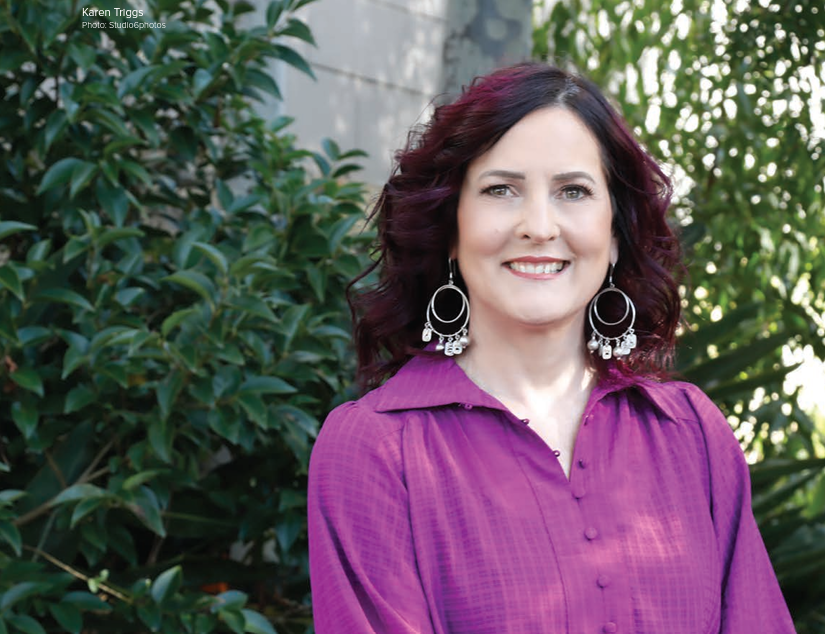COUNSELLING PERSPECTIVES | Sexology: A Personal, Professional Perspective
ACA Member, Karen Triggs, provides a detailed and firsthand account of sexology as a counselling profession. As featured in the Counselling Australia Journal Winter 2023, Volume 24 Number 3.

What is sexology?
Sexology is the scientific study of human sexuality from biological, psychological and social perspectives. This typically includes the study of anatomy, reproduction, sexual function, sexual health and the psychological and societal factors that influence sexual behaviour. Sexologists typically have undergraduate degrees in public health, medicine, social work, psychology or counselling, as well as other allied health professions.
In Australia, anyone can ‘set up shop’ as a sexologist and provide sex therapy, as there is no legal requirement for registration. The Society of Australian Sexologists (SAS – see societyaustraliansexologists.org.au) is the peak professional body representing formally qualified sexologists who practice either as psychosexual therapists or educators. Its members are required to follow a stringent code of ethics and professional standards. SAS also offers an accreditation pathway for those who meet the stipulated supervision, clinical experience and professional development requirements. ASSERT NSW (assertnsw.au) is a similar organisation.
What does a psychosexual therapist actually do?
Psychosexual therapists help people to resolve sexual issues and difficulties and have more satisfying sex lives, which in turn contributes positively to general quality of life.
Psychosexual therapists treat a wide range of issues, such as in desire discrepancy, painful sex, performance anxiety, gender identity and orientation concerns, arousal and orgasm challenges, sexual trauma, problematic compulsive sexual behaviour, infidelity, and erectile difficulties.
In addition to conventional counselling and psychotherapy modalities and interventions, most psychosexual therapists use PLISSIT (permission, limited information, specific suggestions and intense therapy) – a valuable framework that facilitates a sensitive, client-centred approach to case formulation and treatment. Tertiary-qualified therapists are also required to complete the Sexual Attitudes Reassessment (SARS), which goes a long way to ensuring sex positive and inclusive practice.
I completed my SARS as part of the Curtin University postgraduate program and found the unit absolutely riveting. I remember some very interesting and unexpected conversations I had with my grandmother about the topics we covered. In my own practice, I often integrate somatic art therapy and internal family systems in my sex therapy sessions, both with individuals and partnered clients. My current area of interest is in exploring the intersection of ADHD and sexuality further.
What does a sex therapy session look like?
There is a common misconception that psychosexual therapists use ‘hands-on’ techniques in sessions. This is not at all true. Formally qualified psychosexual therapists will not allow nudity, erotic touch or any other sexual activity during sessions. Sex therapy is, therefore, not that different from traditional talk-based counselling. Any practical exercises requiring touch that may be recommended are always completed by clients in the privacy of their own home.
Clients are often anxious or embarrassed when they arrive at the first session, so it is important for the therapist to help clients feel at ease when talking about sex. The therapist needs to have a clear and comprehensive understanding of all the bio/psycho/social factors contributing to the problem, and a detailed sexual history is usually completed with each client. An important part of our work is to help clients shift from a narrow ‘intercourse = sex’ focus to one in which pleasure, sensual touch and connection is the focus. It is quite common for clients to have false beliefs about sex, and it is our responsibility to provide clear and accurate information.
Is there much of a demand for sex therapy?
Yes, in the last few years there has been a rapidly increasing need for sex therapy and we simply cannot keep up with the current demand. I would encourage counsellors interested in sexuality to learn more, either through sexology-focused professional development, supervision with an accredited psychosexual therapist or postgraduate training.
Where to find courses and resources to develop your career in sexology?
In Australia, the University of Sydney offers a postgraduate program in sexual and reproductive health – the ‘Psychosexual Therapy Pathway’ – which is a specialist pathway for registered counsellors, social workers and psychologists. Curtin University in Perth provides several options for study, which include the Graduate Certificate in Sexology, Graduate Diploma in Sexology and Master of Sexology (Professional). Entry into these courses requires applicants to hold a recognised bachelor degree. Both universities work closely with the SAS to develop professional standards for Australian sexologists.
Some of my favourite go-to resources include:
■Sexual intelligence: what we really want from sex and how to get it by Marty Klein
■Come as you are by Emily Nagoski
■Sex made simple: clinical strategies for sexual issues in therapy by Barry McCarthy
■Good loving, great sex by Dr Rosie King
■LGBTQ clients in therapy: clinical issues and treatment strategies by Joe Kort
■EMDR therapy and sexual health: a clinician’s guide by Stephanie Baird



